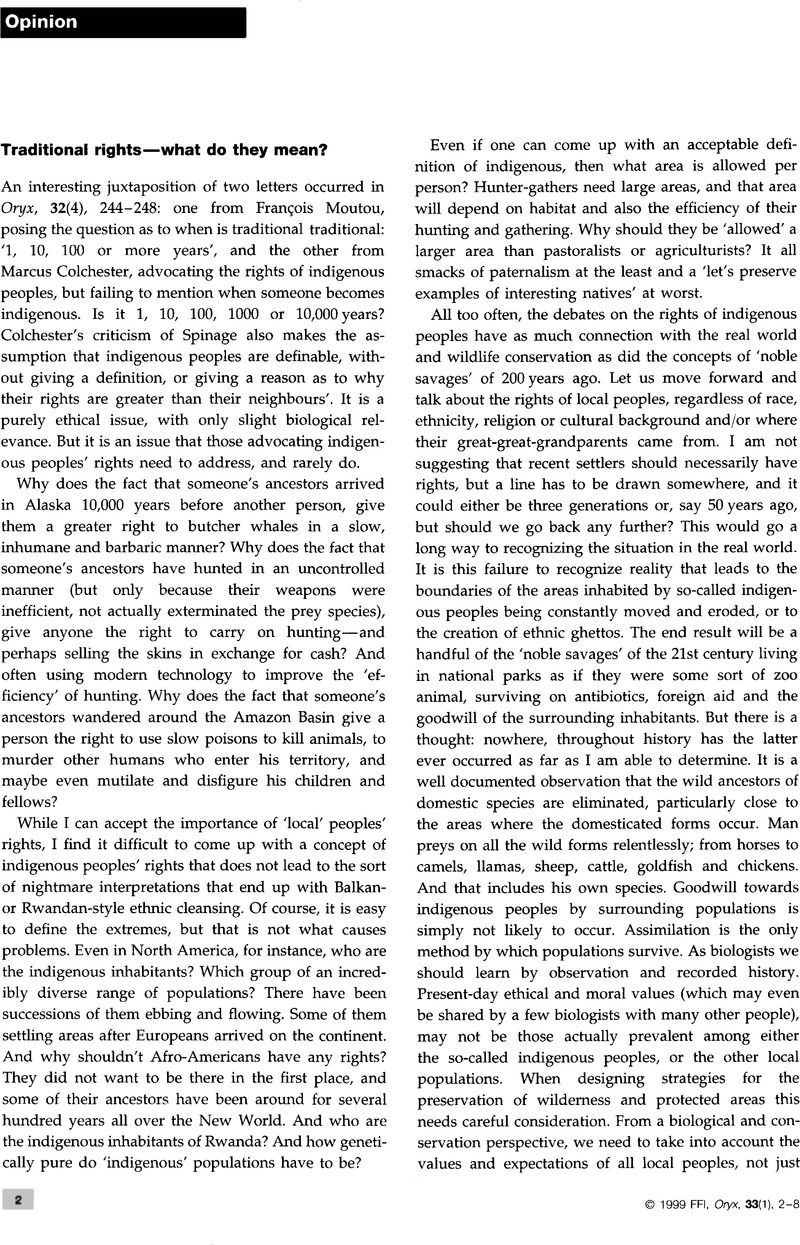Koch, E. (
1997) Ecotourism and rural reconstruction in South Africa; reality or rhetoric. In
Social Change and Conservation. Environmental Politics and Impacts of National Parks and Protected Areas (eds
Ghimire, K. B. and
Pimbert, M. P.), pp.
214–
238.
Earthscan,
London.
Google Scholar 